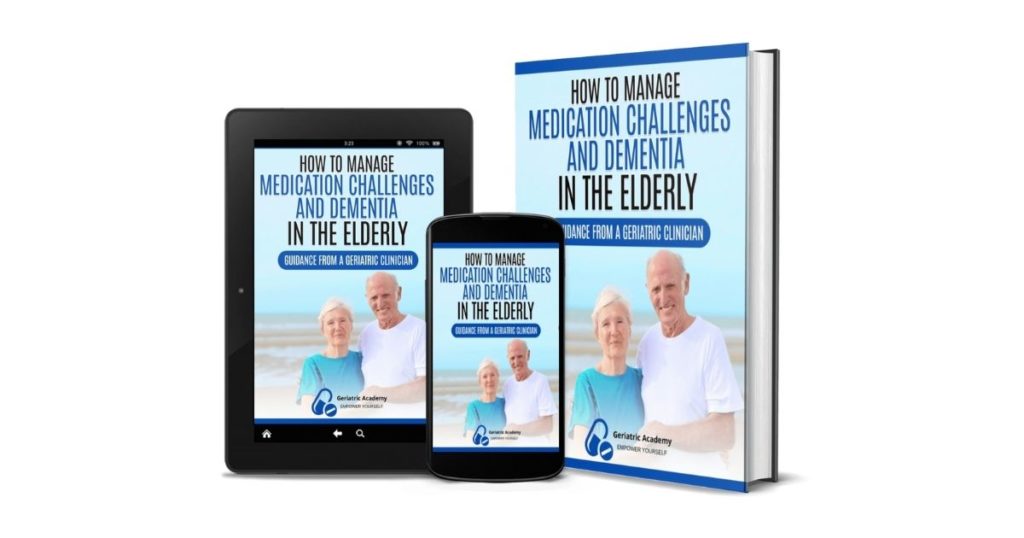How the Groundbreaking Book From a Board-Certified Geriatric Pharmacist Is Empowering Older Adults to Identify and Reduce Overmedication and Adverse Drug Reactions
In an age where medication has the power to extend lives and treat formerly untreatable conditions, the staggering number of prescription drugs is both a blessing and a curse. On average, today’s elderly adults are taking at least four prescription drugs every day, with 39 percent of them taking over five. The more medications a person takes in combination, the higher their risk of adverse reactions and negative side effects. In fact, according to the CDC, adults 65 years or older are three times more likely than younger patients to come to emergency departments for adverse drug events. That statistic amounts to over 177,000 emergency visits every year.
Kobi Nathan shares insight from clinical practice and teaching experience
Board-certified geriatric pharmacist Kobi Nathan is the founder of the Geriatric Academy. He is on a mission to empower older adults to take charge of their healthcare and medication therapy through self-advocacy and learning.
Nathan specializes in rehabilitation medicine and neurocognitive diseases. This area of expertise often sees him caring for patients recovering from debilitating strokes as well as traumatic brain and spinal cord injuries. In addition, he assists older adults coping with Alzheimer’s and other forms of dementia as they manage medication-related concerns.
Currently, Nathan practices in a county-operated, long-term care facility and serves as a core clinical faculty member on the Medical Center’s Division of Geriatrics and Aging Clinical Competency Committee. “I teach my physicians, pharmacists, and students to look carefully at the whole person and take all of their medical problems, unique issues, and clinical variables into account,” he says. “With thousands of medications approved for treating various diseases, patients can get overwhelmed. Often, medical providers and busy pharmacists lack time to educate their patients about the medications they prescribe.”
New resource for older adults Managing Medication Challenges and Dementia
In his effort to promote awareness and education, Nathan is excited to release the e-book, How to Manage Medication Challenges and Dementia In the Elderly: Guidance From a Geriatric Clinician. The publication of Nathan’s book marks a turning point; until now, there has been a notable shortage of resources to help older adults and their caregivers understand potentially harmful interactions caused by medications commonly prescribed for dementia.
“So many internet searches lead to unqualified individuals who do not have professional training, expertise, or state-issued license to practice,” Nathan explains. “These parties give biased, medically inappropriate, and sometimes dangerous advice to people who need accurate information.”
Failure to become educated on prescription medications can be fatal. Adverse drug reactions are responsible for nearly 30% of hospital visits and are the fifth leading cause of death for older adults in the United States. “My ultimate goal is to reach as many older adults and their caregivers as possible and reduce preventable medication-associated hospital admissions and death through responsible and ethical education,” says Nathan.
Who should read Kobi Nathan’s book?
With more than 5.8 million Americans experiencing Alzheimer’s and other related dementias today, the lack of discussion on overmedication is inexcusable. Nathan’s book is a long-awaited resource advocating for the elderly and their caretakers—a vastly underserved demographic. This revolutionary e-book disrupts the system by cutting through medical jargon and enabling readers to make their own decisions regarding medical safety. “The e-book and e-course are presented in simple-to-understand language and provide all the information you need about your medications,” says Nathan.
In his book, Nathan covers how older adults can identify and reduce medication overuse. He also discusses different types of dementia and how they can be managed through non-pharmacological and pharmacological management treatments.
To learn more about this groundbreaking resource, How to Manage Medication Challenges and Dementia In the Elderly: Guidance From a Geriatric Clinician or other services available from the Geriatric Academy, readers can visit the Geriatric Academy website.
